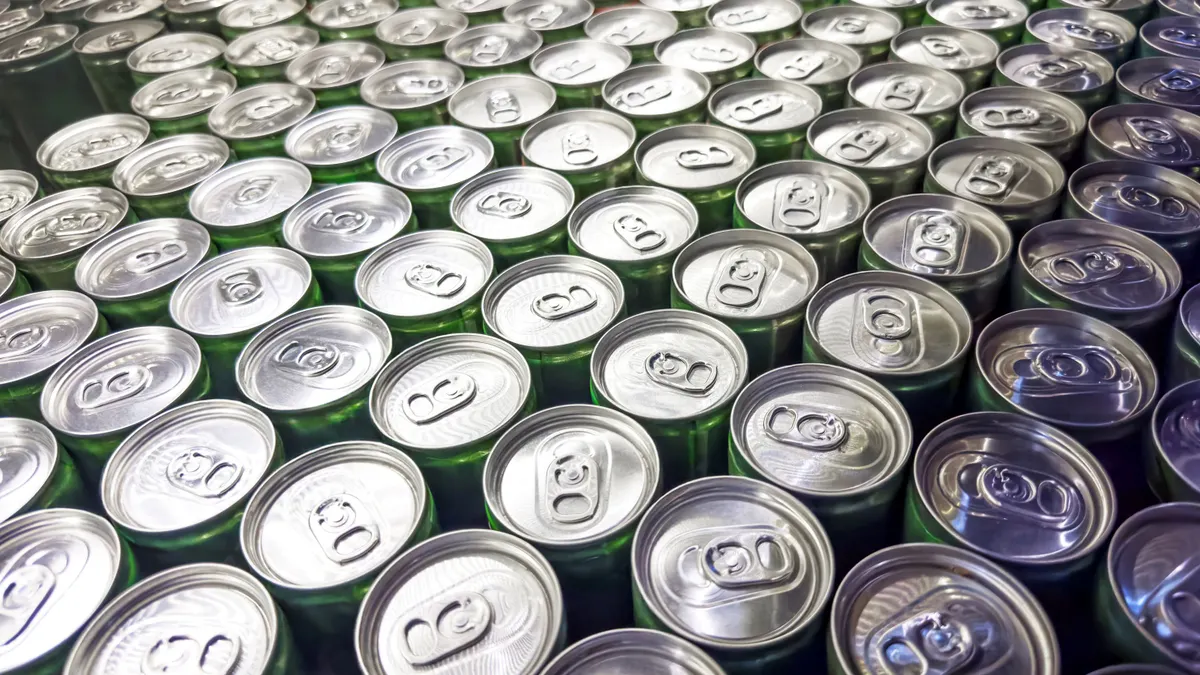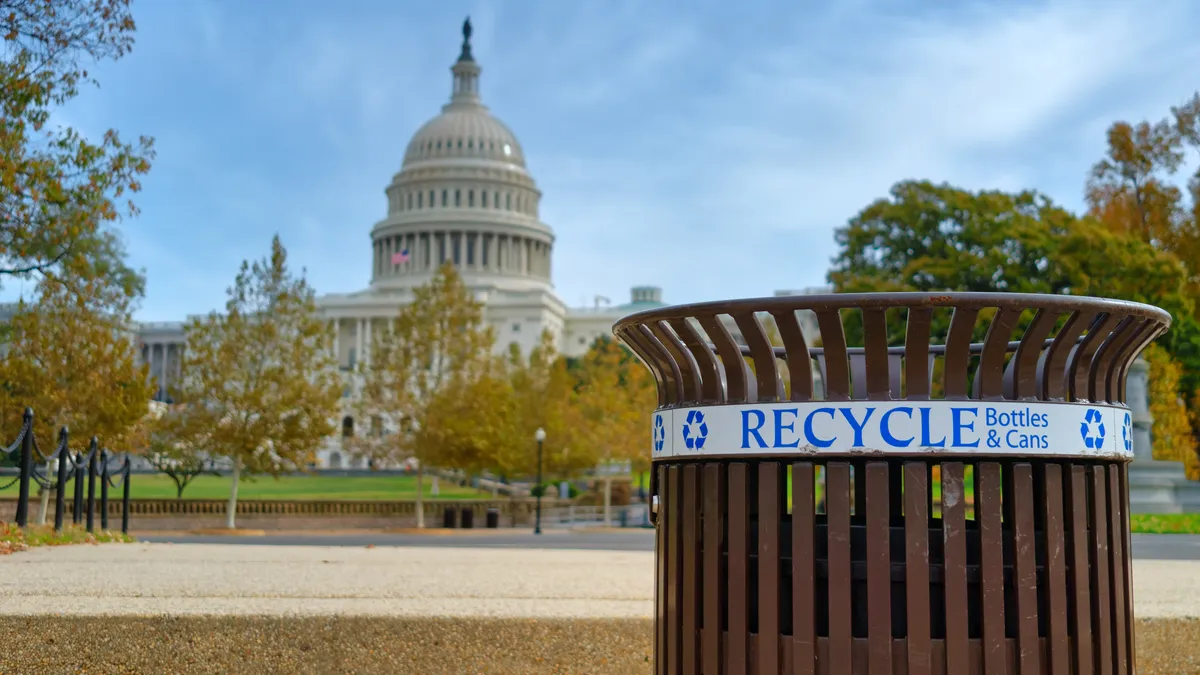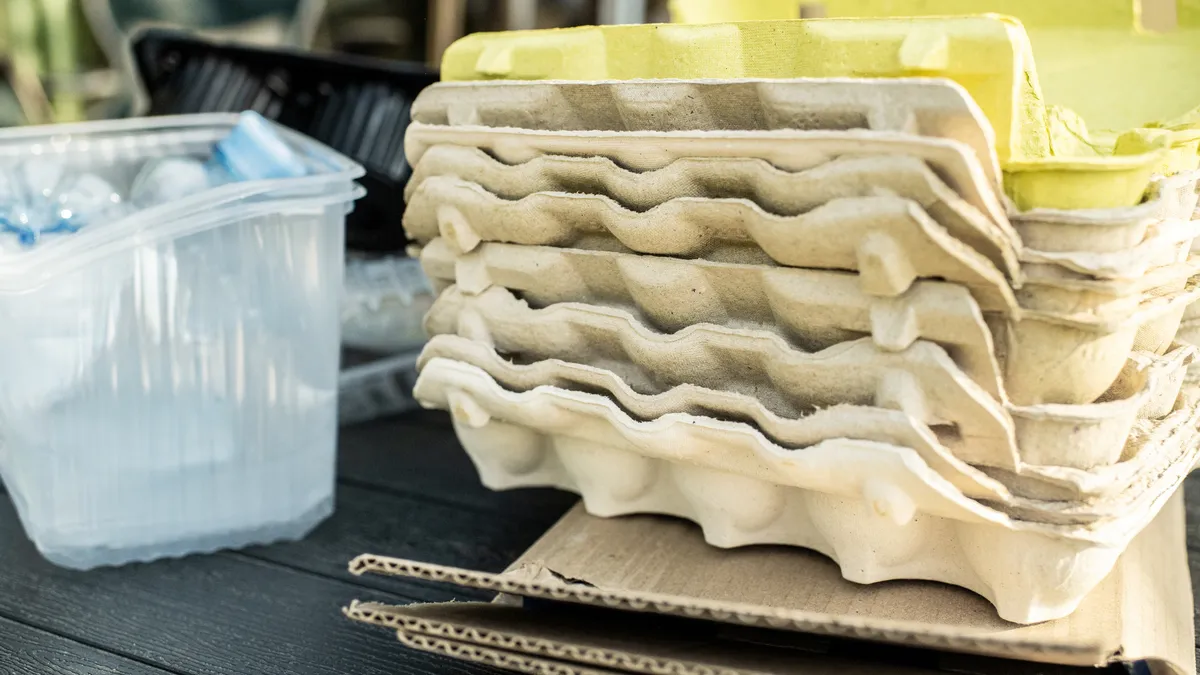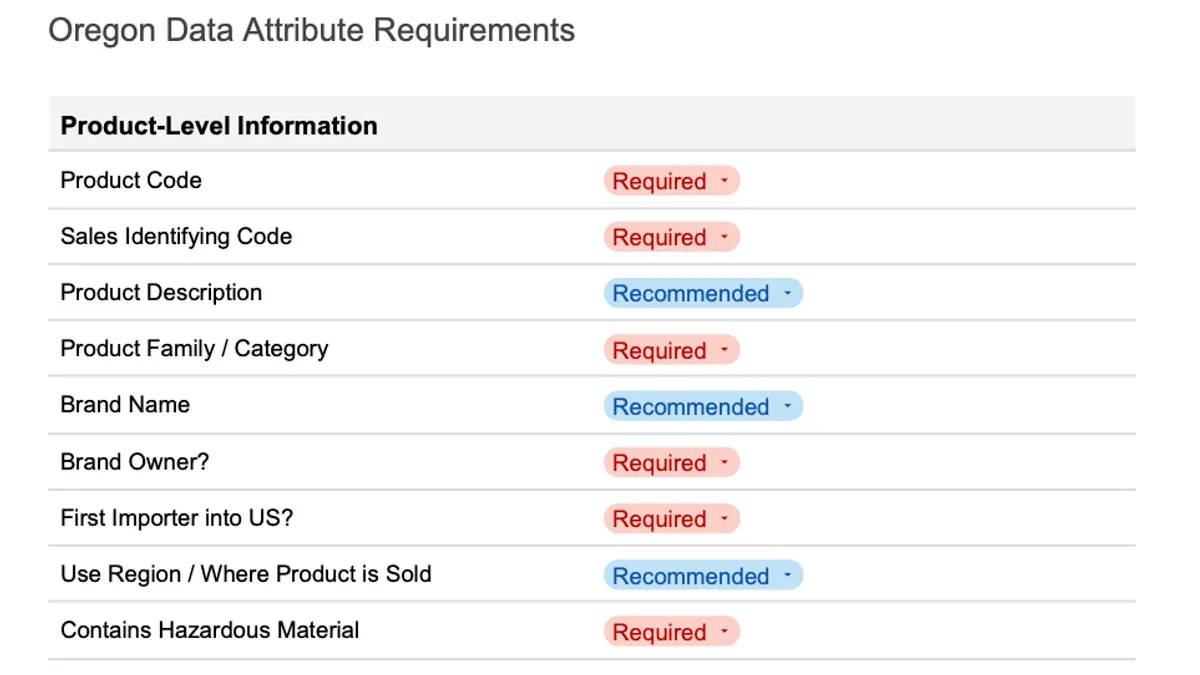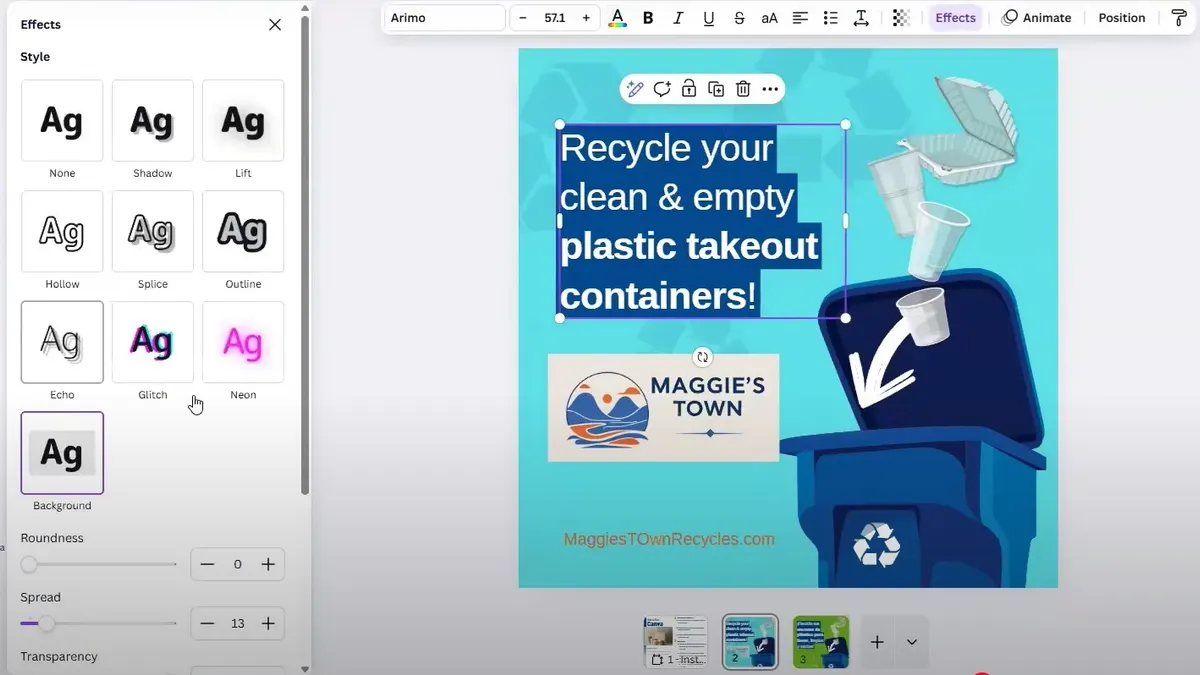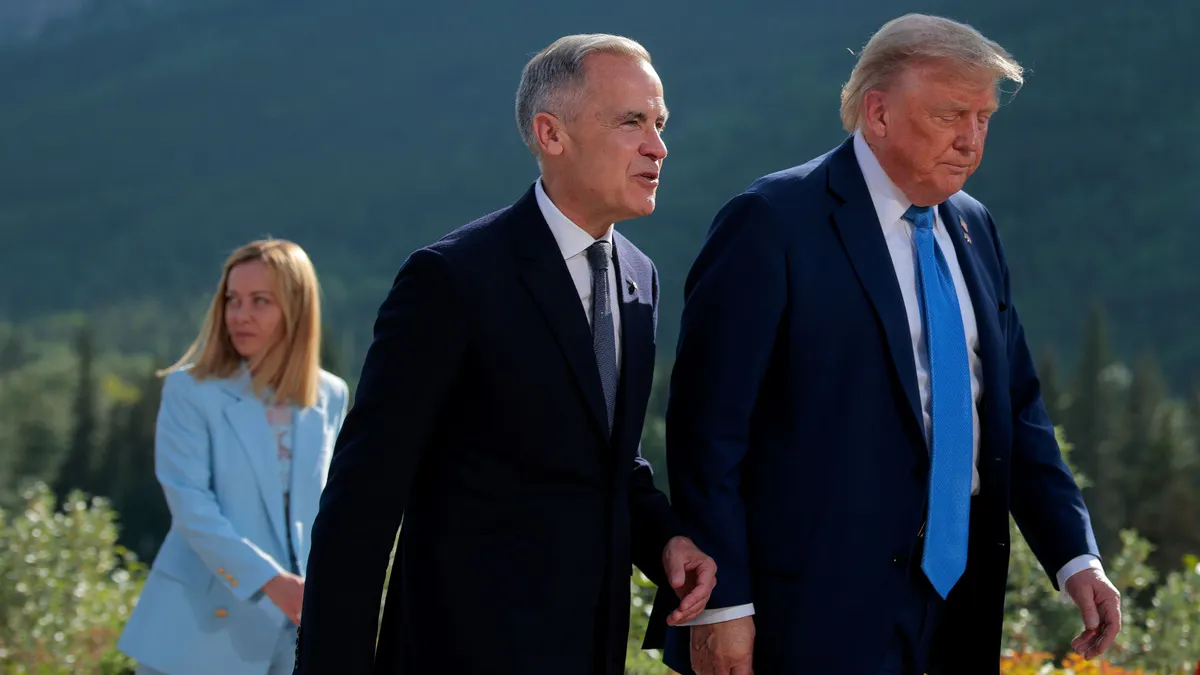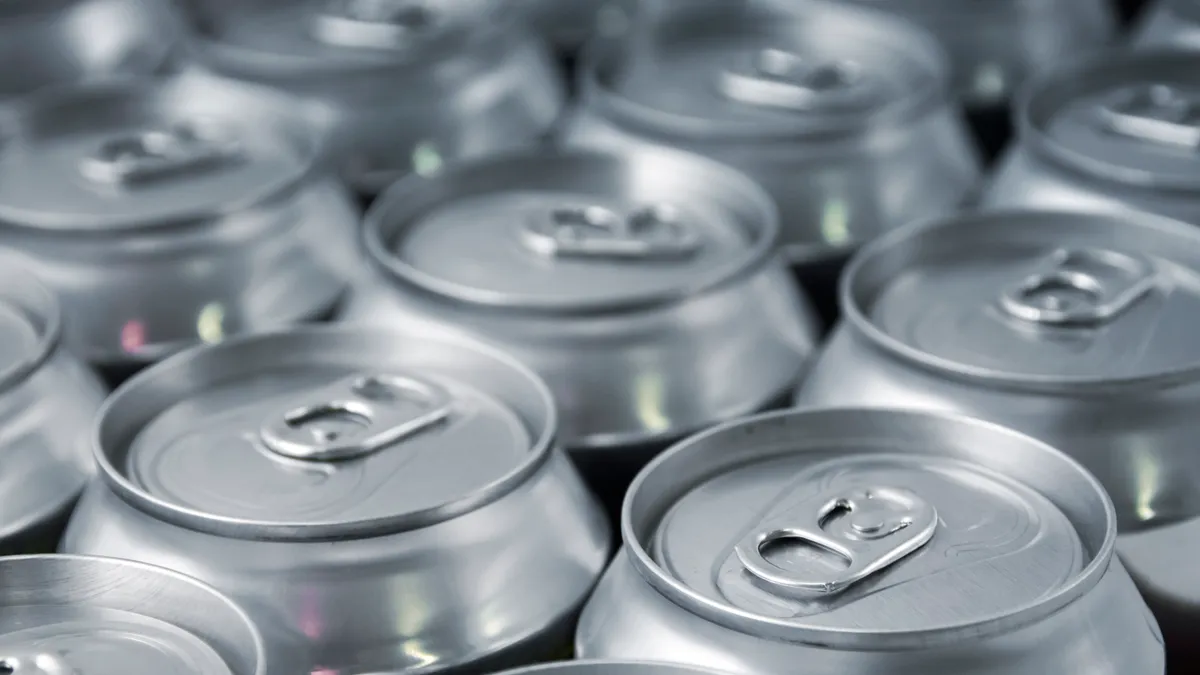Packaging manufacturing and metals trade groups so far are not in favor of the steel and aluminum tariff increases that President Donald Trump announced Friday.
Trump unveiled plans to raise tariffs on steel and aluminum imports to 50%, up from the 25% that took effect in March. The doubled rates are slated to be implemented Wednesday. These tariffs, which are not affected by last week’s court ruling blocking many levies, are intended to further protect the U.S. steel industry, Trump said Friday during a visit to a Pittsburgh steel factory to recognize Japan-based Nippon Steel’s pending acquisition of U.S. Steel.
But some groups say other U.S. businesses in metals supply chains will be harmed, with these businesses — and consumers — likely suffering consequences such as increased costs.
Association members “strongly oppose any action” that would raise steel and aluminum tariffs to 50%, said Can Manufacturers Institute President Robert Budway, in a statement. “Doubling the steel tariff will further increase the cost of canned goods at the grocery store. This cost is levied upon millions of American families relying on canned foods picked and packed by U.S. farmers, food producers, and can makers.”
Following the 25% tariff announcement earlier this year, several metal packaging manufacturers, including Ball and Crown, expressed concern about increased costs from the duties and passing the hikes down to already price-stressed consumers. The duties also affect other metal packaging manufacturers, such as for caps and closures, foils and industrial steel drums.
Greif, which has a steel drum production and reconditioning business, several months ago “assembled an internal taskforce to actively manage and mitigate the impact on our operations and customers. That work is ongoing," said Kim Kellermann, Greif senior vice president and chief operations officer, via email. That group will assess the new 50% steel and aluminum tariffs and any actions Greif might take in response.
The Aluminum Association also said in an emailed statement Monday that it appreciates Trump’s “continued focus on strengthening the U.S. aluminum industry,” but these tariffs could have unintended consequences. Association members will continue working with the Trump administration to increase domestic production, said Matt Meenan, vice president of external affairs at the Aluminum Association. “However, aluminum and steel are different.”
“Tariffs alone will not increase U.S. primary aluminum production nor support the $10 billion invested by the mid-and-downstream industry over the past decade,” Meenan said. “We need significant new sources of reliable, low-cost electricity and an all-of-the-above policy approach to keep and collect more domestic aluminum scrap.”
AA is in touch with the Trump administration to better understand the details of the levies, Meenan said. “We urge the administration to take a tailored approach that reserves high tariffs for bad actors — such as China — that flood the market and includes carve outs for proven partners — such as Canada. Doing so will ensure the U.S. economy has the access to the aluminum it needs to grow while we work with the administration to increase domestic production.”
CMI similarly seeks a more tailored approach, with Budway saying the stated plan “plays into the hands of China and other foreign canned food producers, which are more than happy to undercut American farmers and food producers.” This risks U.S. food security, Budway said. “We are asking President Trump for targeted tariff relief, on tin mill steel and aluminum produced by our allies and used in the production of cans that are made in America.”
Budway further explained that domestic tin mill steel producers made a “series of unfortunate decisions over the past eight years” that resulted in “dramatic cuts that have decreased U.S. production of the specialized steel used in can making by 75%.” Therefore, domestic can makers and canned food producers now import nearly 80% of tin mill steel from foreign trade partners, he said.
Meanwhile, foreign leaders are examining whether to implement countertariffs or other measures.
The European Commission “strongly” regrets the surprise doubling of tariffs, BBC reported. The commission said Monday that it will make a case this week for the United States to reduce or eliminate all announced tariffs, including those on steel and aluminum, Reuters reports. The EU previously imposed, and then suspended, countertariffs on $24 billion of U.S. imports due to the earlier metal duties.
Editor’s note: This story has been updated with a statement from Greif.



